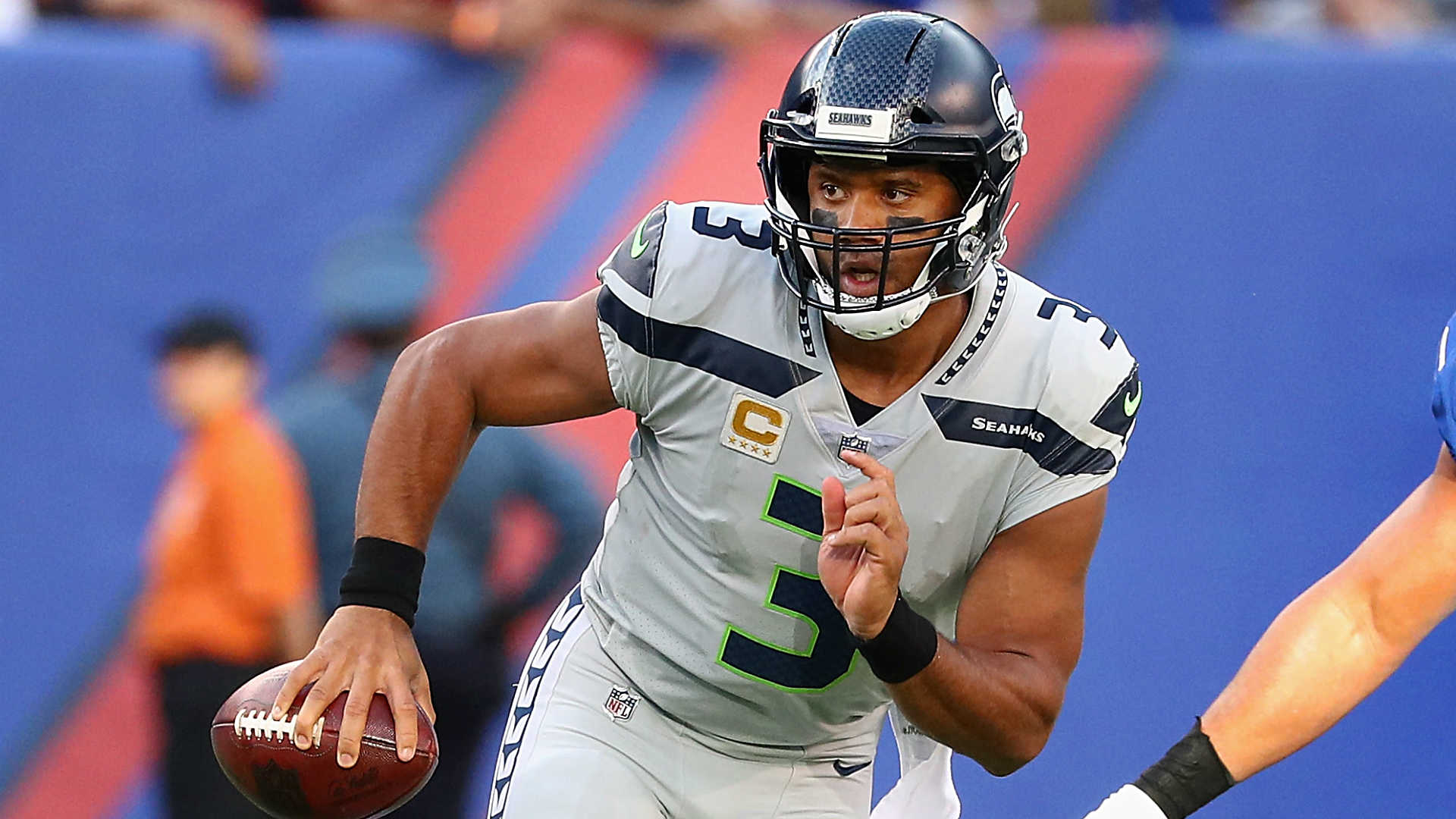When it comes to Russell Wilson, there's more than just football on the table. The name Russell Wilson is synonymous with excellence, leadership, and resilience in the NFL. But beyond the glitz and glamour of the gridiron lies a deeper conversation about identity, race, and representation. Today, we’re diving into the heart of Russell Wilson race and exploring how this topic has shaped his journey both on and off the field.
Russell Wilson isn’t just a quarterback; he’s a symbol of inspiration for millions of fans around the world. His rise to prominence in the NFL has sparked discussions about race, representation, and the challenges faced by athletes of color in professional sports. As we unpack his story, you’ll see how his experiences have added depth to the conversation about diversity in sports.
Before we get into the nitty-gritty, let’s set the stage. This article isn’t just about facts and figures; it’s about understanding the human side of Russell Wilson. We’ll explore his background, achievements, and the impact of race on his career. So, grab your favorite drink, and let’s dive deep into the world of Russell Wilson race.
Read also:Chris Brown Mom And Dad The Untold Story Behind The Music Icons Family
Who is Russell Wilson?
Let’s start with the basics. Russell Carl Wilson was born on November 29, 1988, in Richmond, Virginia. He’s a quarterback for the Denver Broncos, but his journey to the NFL wasn’t always smooth sailing. Wilson’s career is a testament to hard work, perseverance, and a little bit of magic. But what makes him stand out isn’t just his stats—it’s the way he carries himself both on and off the field.
Russell Wilson’s story is one of triumph over adversity. From his early days playing college football to his rise as one of the NFL’s top quarterbacks, Wilson has consistently defied the odds. His journey is a powerful reminder of the importance of resilience and determination. And as we delve deeper into his career, you’ll see how his identity as a Black quarterback has played a significant role in shaping his path.
Biography of Russell Wilson
Before we dive into the topic of Russell Wilson race, let’s take a moment to explore his life and career in more detail. Below is a quick overview of his personal and professional life.
| Full Name | Russell Carl Wilson |
|---|---|
| Date of Birth | November 29, 1988 |
| Place of Birth | Richmond, Virginia |
| Height | 6 ft 1 in (185 cm) |
| Weight | 214 lbs (97 kg) |
| Position | Quarterback |
| Current Team | Denver Broncos |
This table gives you a snapshot of Russell Wilson’s personal and professional life. As we move forward, you’ll see how these details play into the larger conversation about race and representation in sports.
Russell Wilson Race: A Closer Look
When we talk about Russell Wilson race, we’re not just talking about his ethnicity; we’re talking about the broader implications of being a Black quarterback in the NFL. Historically, the position of quarterback has been dominated by white players, and Wilson’s success has challenged long-standing stereotypes about race and athleticism.
Wilson’s journey hasn’t been without its challenges. From facing skepticism about his height to dealing with racial stereotypes, he’s had to overcome numerous obstacles to reach the top of his game. But through it all, he’s remained focused on his goals and committed to breaking barriers for future generations.
Read also:Jonathan Taylor Thomas Dating The Inside Scoop Youve Been Waiting For
Breaking Stereotypes
One of the most significant aspects of Russell Wilson race is how he’s broken down stereotypes about Black quarterbacks. For years, there’s been a narrative that Black players aren’t suited for the intellectual demands of the quarterback position. Wilson has proven time and time again that this narrative is not only false but harmful.
- Wilson has consistently demonstrated exceptional decision-making skills on the field.
- He’s known for his ability to read defenses and make quick adjustments during games.
- His leadership qualities have earned him the respect of teammates and opponents alike.
These qualities have helped to redefine what it means to be a quarterback in the NFL. Wilson’s success has paved the way for other Black quarterbacks to thrive in the league.
The Impact of Race on Russell Wilson’s Career
Race has played a significant role in shaping Russell Wilson’s career. From the early days of his college football career to his current status as one of the NFL’s top quarterbacks, Wilson has faced challenges related to his race. But instead of letting these challenges define him, he’s used them as motivation to excel.
One of the most notable examples of this is how Wilson has handled criticism about his height. At 6’1”, he’s considered short for an NFL quarterback. However, he’s used his athleticism and intelligence to overcome this perceived disadvantage. His success has shown that height isn’t the only factor that determines a quarterback’s potential.
Redefining the Quarterback Position
Wilson’s impact on the quarterback position goes beyond just his stats. He’s redefined what it means to be a quarterback in the NFL. By combining athleticism with intelligence, he’s created a new archetype for the position. This has opened up opportunities for other players who don’t fit the traditional mold of a quarterback.
Wilson’s success has also highlighted the importance of diversity in sports. By breaking down barriers and challenging stereotypes, he’s helped to create a more inclusive environment for athletes of all backgrounds.
Russell Wilson’s Advocacy for Racial Equality
Off the field, Russell Wilson has been a vocal advocate for racial equality. He’s used his platform to speak out against systemic racism and inequality, both in sports and in society as a whole. His activism has made him a role model for millions of fans around the world.
Wilson’s advocacy isn’t limited to just words; he’s taken action to make a difference. Through his charitable work and community involvement, he’s worked to address issues related to race and inequality. His efforts have inspired others to get involved and make a positive impact in their communities.
Charitable Work and Community Involvement
Russell Wilson’s commitment to racial equality extends beyond just speaking out. He’s actively involved in several charitable initiatives aimed at addressing issues related to race and inequality. Some of his notable contributions include:
- Founding the Russell Wilson Passing Foundation, which supports education and health initiatives for underserved communities.
- Participating in protests and demonstrations against racial injustice.
- Partnering with organizations to promote diversity and inclusion in sports.
These efforts have made a tangible difference in the lives of many people, and they underscore Wilson’s dedication to creating a more equitable society.
Challenges Faced by Black Quarterbacks in the NFL
While Russell Wilson has achieved great success in the NFL, he’s not immune to the challenges faced by Black quarterbacks. From facing skepticism about their abilities to dealing with racial bias, Black quarterbacks have had to overcome numerous obstacles to succeed in the league.
Wilson’s experience highlights the importance of addressing these challenges and creating a more inclusive environment for athletes of all backgrounds. By sharing his story, he’s helping to raise awareness about the issues faced by Black quarterbacks and advocating for change.
Addressing Racial Bias in Sports
Racial bias is a significant issue in sports, and it’s one that needs to be addressed. Black quarterbacks like Russell Wilson have faced discrimination and bias throughout their careers, and it’s important to acknowledge these challenges and work towards solutions.
Some of the ways to address racial bias in sports include:
- Promoting diversity and inclusion in coaching and management positions.
- Encouraging dialogue about race and inequality in sports.
- Implementing policies to address discrimination and bias in sports organizations.
These steps are crucial for creating a more equitable and inclusive environment for athletes of all backgrounds.
The Future of Race and Representation in Sports
As we look to the future, it’s clear that the conversation about race and representation in sports will continue to evolve. Athletes like Russell Wilson are leading the charge in breaking down barriers and challenging stereotypes. Their success is paving the way for future generations of athletes to thrive in a more inclusive environment.
The future of sports depends on our ability to address issues related to race and inequality. By promoting diversity and inclusion, we can create a more equitable and just society for everyone. Russell Wilson’s story is a powerful reminder of the importance of this work, and his legacy will continue to inspire generations to come.
Empowering the Next Generation
Russell Wilson’s impact extends beyond just his career in the NFL. He’s empowering the next generation of athletes to pursue their dreams and break down barriers. By sharing his story and advocating for change, he’s helping to create a brighter future for all athletes.
As we move forward, it’s important to continue the conversation about race and representation in sports. By working together, we can create a more inclusive and equitable environment for everyone. Russell Wilson’s story is a testament to the power of perseverance, determination, and the human spirit.
Conclusion
In conclusion, Russell Wilson race is more than just a topic of conversation; it’s a powerful narrative about identity, representation, and the challenges faced by athletes of color in professional sports. Wilson’s journey is a testament to the importance of resilience, determination, and advocacy for change.
As we’ve explored in this article, Wilson’s success has challenged long-standing stereotypes about race and athleticism. His advocacy for racial equality and his commitment to creating a more inclusive environment have made him a role model for millions of fans around the world.
We invite you to continue the conversation by leaving a comment or sharing this article with your friends. Together, we can make a difference and create a brighter future for all athletes. So, what do you think? Let’s keep the conversation going!
Table of Contents
- Who is Russell Wilson?
- Biography of Russell Wilson
- Russell Wilson Race: A Closer Look
- Breaking Stereotypes
- The Impact of Race on Russell Wilson’s Career
- Redefining the Quarterback Position
- Russell Wilson’s Advocacy for Racial Equality
- Charitable Work and Community Involvement
- Challenges Faced by Black Quarterbacks in the NFL
- Addressing Racial Bias in Sports
- The Future of Race and Representation in Sports
- Empowering the Next Generation



